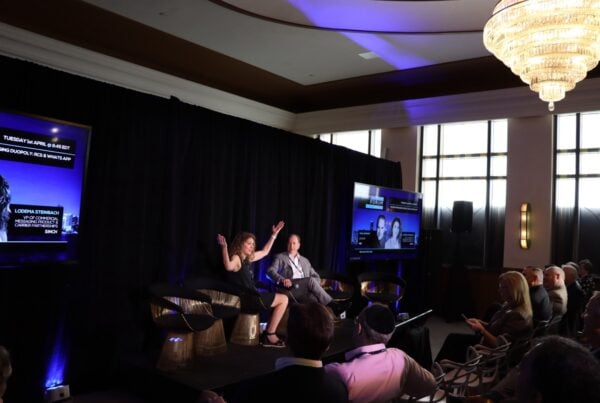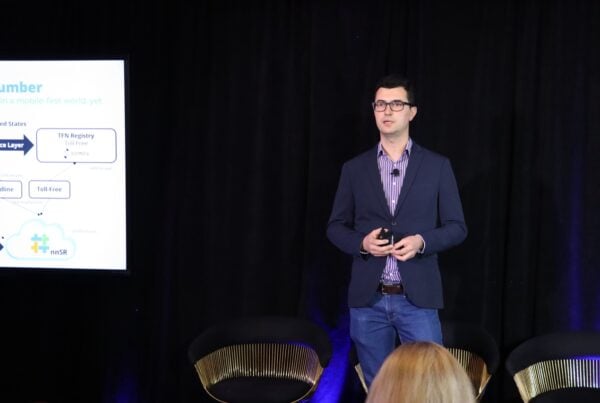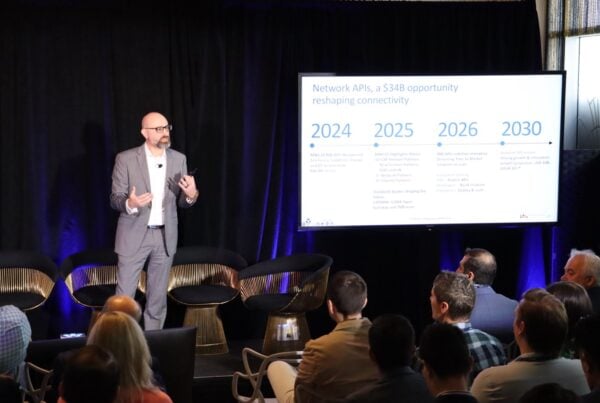Known for its creative Advertising approach, exceptional hospitality, amazing natural wonders and exotic (spicy) food; Thailand has also become a sizzling hot tech startup hub in Asia. A wide range of industry events such as Mobile Monday and WebMob take place regularly, and an expanding presence of Venture Capital funds, including each of the mobile operators having their own accelerators, are all driving forces behind this impressive growth, pushing for technological innovation and grabbing the attention of geeks worldwide. Ronen Mense VP of Sales & Business Development for APAC at MassiveImpact, MEF Asia Board member and Thailand resident has ten tips on the Mobile Market.
1) Thailand is a social hotspot
It is no surprise that Facebook is popular in Thailand; in fact it is the leading user- generated- content service in the Kingdom. Latest figures from Facebook suggest that as of September 2013 there were 27.9 million registered Facebook users making it the #8 ranked country (unique users), and Bangkok the #1 Facebook-using city in the world.
LINE, the mobile chat app from NHN, boasts over 18M users already, only second to Japan. And the list continues with Youtube boasting an estimated 5M users, Twitter 2M and Instagram around 600K. – Source: Facebook, Zocial Inc.
 2) Thais love their smartphones
2) Thais love their smartphones
Mobile penetration in Thailand sits around 130%; while not everyone has a phone (yet) some people have 2 or 3 SIM cards. The adoption of smartphones in Thailand has seen an explosive growth. A recent report from e-marketer shows that urban penetration for smartphones will double from 2012 to 2013 growing from 17% to 36%, while tablets will account for 7% market share this year. Android overtook Blackberry as the #1 OS in Thailand, which still maintains a significant hold for the beleaguered Canadian company, with a quarter of the Smartphone market.
Source: Ericsson consumer Lab,
3) 3G was (just) launched in May 2013
After what seems like decades of snail- pace mobile broadband service, Thailand launched its first real third-generation service inline with international 2.1-gigahertz frequency standards. 3G is now commercially available across AIS, DTAC and TRUE. Recent good news for consumers- the National Broadcasting and Telecommunications Commission (NBTC) confirmed that all 3 operators are honoring a 15% price reduction requirement for their 3G services on 2.1 GHz spectrum as imposed by the licenses granted to them on December 7 last year. Source: MCOT
4) AIS – Market Leader
Advanced Info Service or more commonly known as AIS is the No.1 Thai mobile operator with 43% market share, leading both in terms of subscribers and revenue market share. AIS has recently introduced an array of entertainment services including digital music store, ebook store, movie streaming service and Premier League Football LIVE broadcast, all now available on Android or IOS devices.
AIS also wants to become the leader in mobile payments and just launched AIS mPay MasterCard. The service will allow users to shop online and pay for goods and services via their mobile phones, which is perceived as a secure and safe way to pay.
5) DTAC – The Challenger
dtac, part of the Telenor group, has seen its market share rise to 31% in Thailand. dtac’s TriNet touts the widest bandwidth in Thailand and is the only network in Thailand operating at 3 network spectrums (1800 MHz, 850 MHz and 2100 MHz).

Adding to its wide recognition of being innovative and creative in its marketing and service offering, earlier this year dtac partnered with Facebook to exclusively launch Free Facebook Messenger and of course…STICKERS!! A dtac executive recently commented that more than 80% of their users are active on social and chat services every day.
6) TRUE – Truly Connected
True Corporation is Thailand’s convergence lifestyle leader, with business operations including fixed line, broadband internet, Pay-TV, electronic cash- payment service and of course Mobile. True holds a 24% share of the market with True Move H dominating the mobile internet arena claiming to provide Thailand’s best 4G LTE and 3G network.
7) Is Google Play Direct Carrier Billing (DCB) coming in Q4?
In August dtac was the first operator to introduce direct billing on the Windows Phone Marketplace for the Nokia 625. SingTel recently introduced DCB in Google Play in Singapore for both post-paid and pre-paid subscribers and says it will be rolling it out across its associates, which is assumed to include AIS. While yet to receive an official confirmation, it is rumored that DCB on Google Play Thailand is on the operator’s roadmap for Q4.
 8) Localize to Monetize
8) Localize to Monetize
From music to games, books to stickers – if it’s not Thai, it won’t fly. An all too common mistake by non-Thai companies entering the Thai market is to take their existing offering and serve it to the Thai market, as is. Localization is the key success factor to establishing deep penetration into the Thai market, especially when only 27% of the population speaks English.
A successful example of ‘Localize to Monetize’ comes from the Chinese game developer who produces Boyaa Texas Poker. Localizing the App in its entirety into Thai helped propel it to top 5 grossing app in Google Play for the majority of 2013. Source: AppAnnie
9) Who really uses mobile internet?
72% of Thailand’s online population is under the age of 35, according to recent statistics published by ComScore which puts it alongside Vietnam as the most online youth in South East Asia, but who is accessing from mobile?
Almost half of the mobile internet users in South East Asia are less than 24 years of age, while Thailand has smallest proportion of 18-24 year old mobile internet users across SEA, here is some interesting things to know:
- Thailand has the highest Female to Male ratio seen among mobile internet users across SEA at 53% to 47% respectively
- Thailand has one of the highest proportions of graduates/post-graduates in the mobile internet user base at 46% vs 36% in SEA
- Games, video and music are the 3 most popular mobile content categories
- Over 40% of Thai mobile internet users stated that mobile ad helps in finding a promotional deal
Source: MMA, Vserv
 10) Phubbing is common practice in Thailand
10) Phubbing is common practice in Thailand
If you have not heard of phubbing, it is the act of snubbing someone in a social setting by looking at your phone instead of paying attention, which many see as rude habit gone unchecked. It is an amalgam of the words “phone” and “snubbing.”
In a survey conducted by Weber Shandwick in Thailand, 96% (of an unknown number) of respondents aged from 12 to 45 said that they have been phubbed while 80% of phub victims feel frustrated, angry or ignored by their companion, being uninterested in them or the conversation. More Thais are avoiding direct contact with people around them when their mobile phones are within reach. The survey showed that 71% of the respondents tend to “phub” and most of them do that out of boredom or while being distracted by pop-up alerts on their handheld device.
Ronen Mense is VP of Sales & Business Development for APAC at MassiveImpact and a MEF Asia Board member – follow him on twitter.





Everyone loves it whenever people get together and share ideas.
Great blog, stick with it!